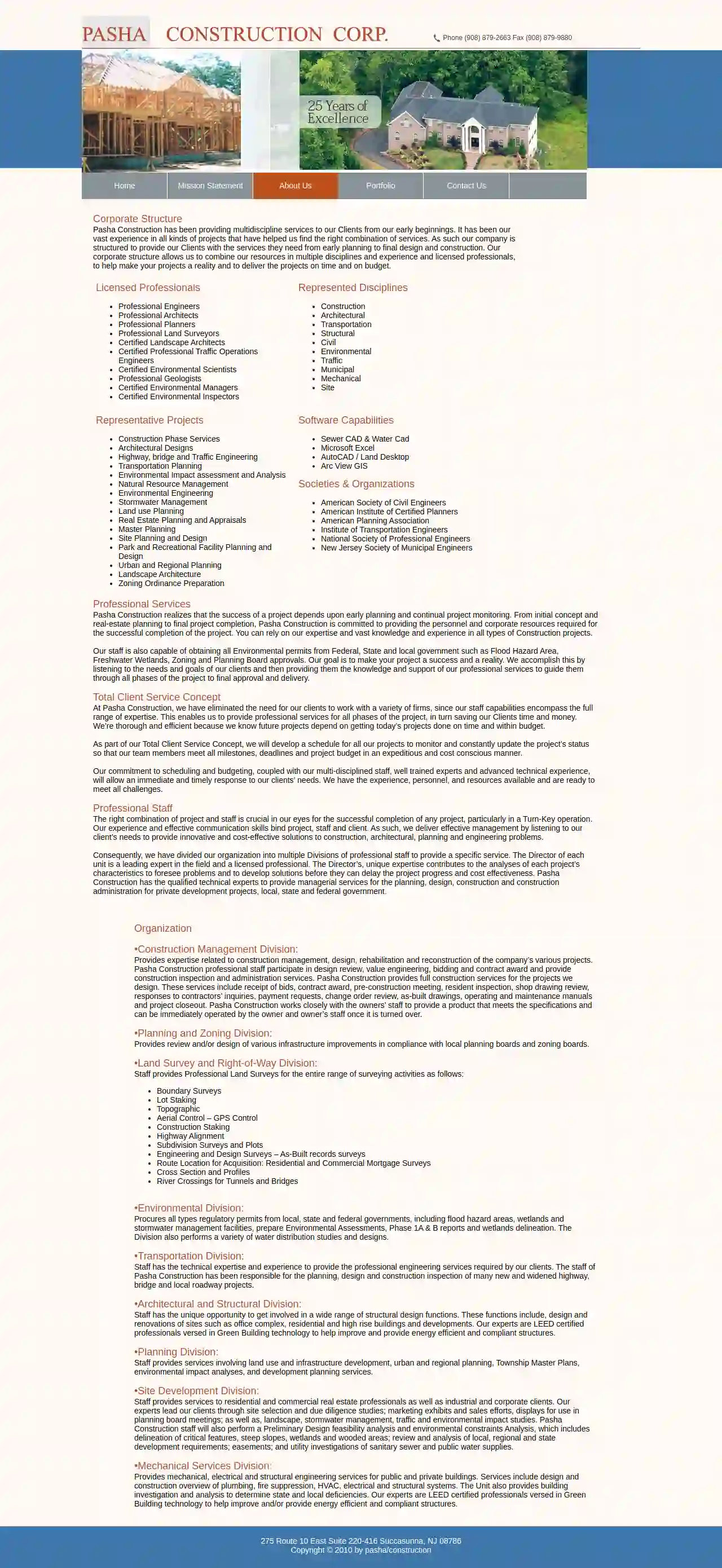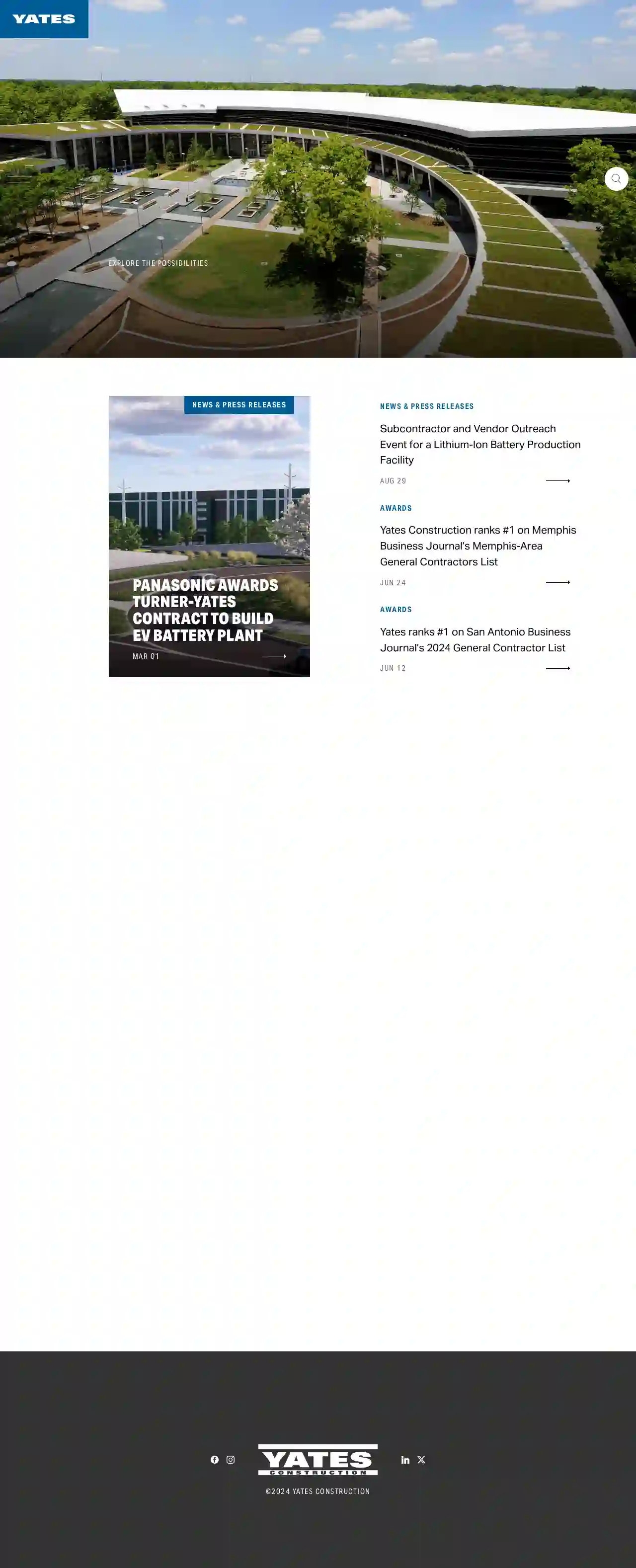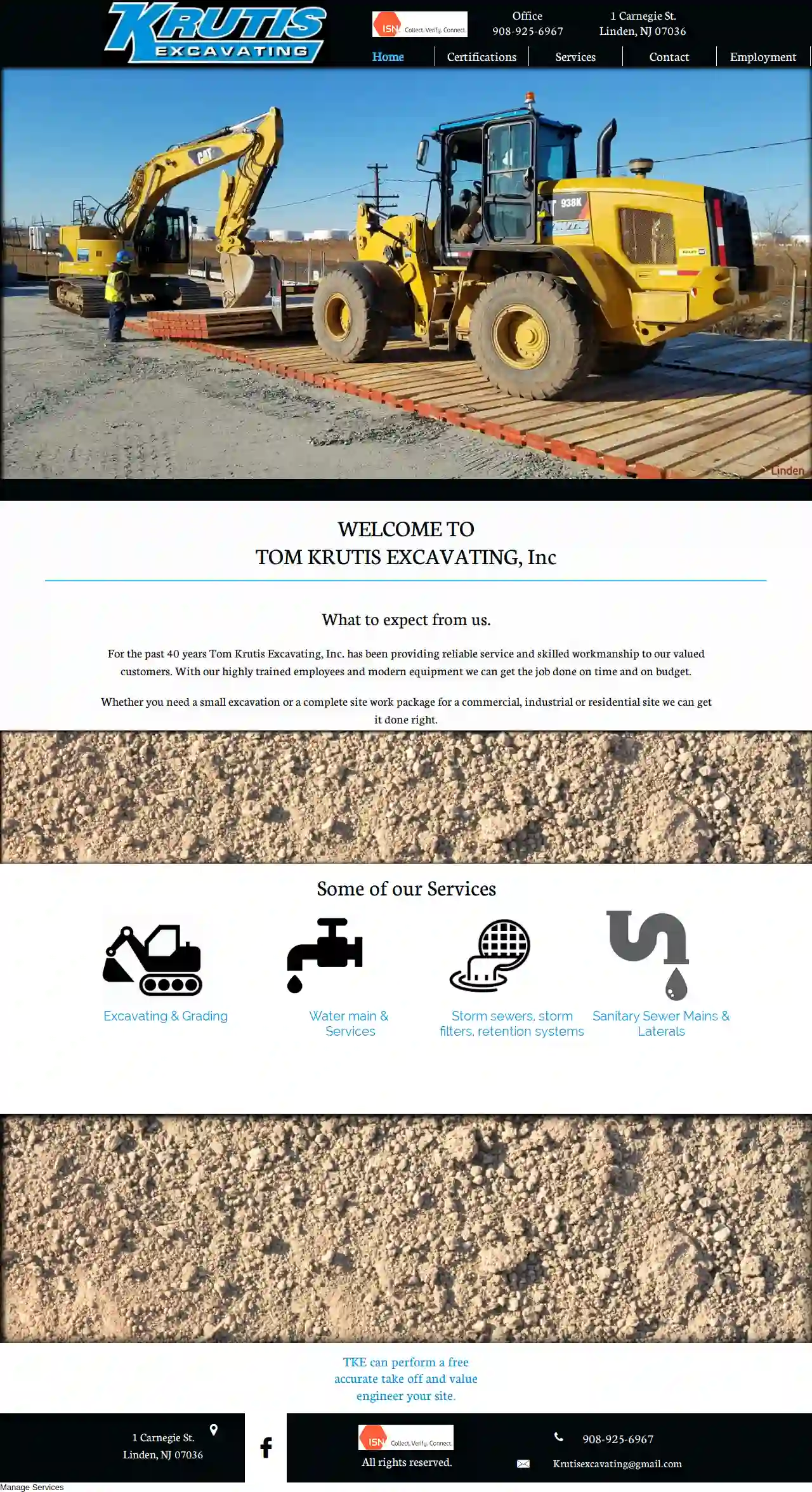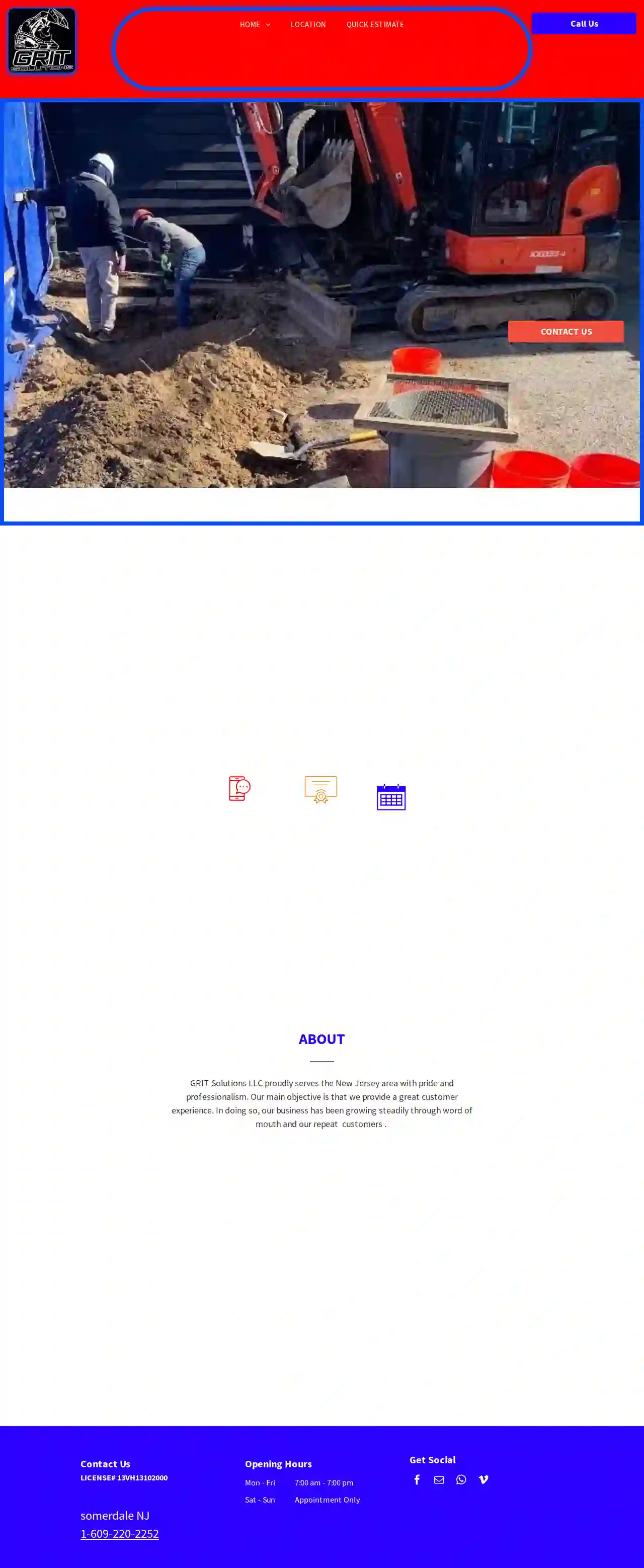Demolition Contractors Norwood
Find top Demolition Contractors in Norwood
Get multiple Demolition Contractors Near Me quotes for your project today! Compare profiles, reviews, accreditations, portfolio, etc... and choose the best deal.

Fox Contractors Corp
4.618 reviews5430 W. Ferguson Road, Fort Wayne, 46809, USWe can dig it. To get a job done right, you need to start with someone who really knows what they’re doing. That’s Fox Contractors. Decades of laying the groundwork Since 1948, we’ve been behind projects in and around Indiana that require specialized support with earthmoving and underground utilities. Our expertise can be found on jobs that range from heavy highway and public works to commercial and industrial site development. View Our Certifications Minority Business Enterprise Indiana Veteran Owned Small Business Enterprise Veteran Owned Business After more than 70 years in business, we’ve built a reputation for impeccable work that’s done on time and on budget. That, along with our fair pricing and highly skilled, safety-conscious workforce make us the first choice for project managers who are looking for a reliable partner. Our clients include DOTs, municipalities, general contractors and developers, and we have experience in the healthcare, education and environmental fields. Fox Contractors is proud to be a certified Minority Business Enterprise (MBE) and a 100% signatory contractor with the IUOE, Teamsters and Laborers’ unions. With a headquarters in Fort Wayne and a regional office near Indianapolis, Fox Contractors serves customers across the region and is prequalified with the Indiana, Michigan and Ohio Departments of Transportation. We take care of business – from the ground up. ”Fox places a high value on safety because our people are our #1 asset. We strive to minimize or eliminate hazards all together, so that all employees can work in a safe environment, without losing time. Our safety-first approach is reflected in our extensive training and education, as well as an employee safety commitment that starts from the top down.” Dallas Day, Owner, Fox Contractors Corp.
- Services
- Why Us?
- Testimonials
- Gallery
Get Quote
Pasha Construction
275 Route 10 East Suite 220-416, Succasunna, 08786, USAbout Us Pasha Construction has been providing multidiscipline services to our Clients from our early beginnings. It has been our vast experience in all kinds of projects that have helped us find the right combination of services. As such our company is structured to provide our Clients with the services they need from early planning to final design and construction. Our corporate structure allows us to combine our resources in multiple disciplines and experience and licensed professionals, to help make your projects a reality and to deliver the projects on time and on budget. Licensed Professionals Professional Engineers Professional Architects Professional Planners Professional Land Surveyors Certified Landscape Architects Certified Professional Traffic Operations Engineers Certified Environmental Scientists Professional Geologists Certified Environmental Managers Certified Environmental Inspectors Represented Disciplines Construction Architectural Transportation Structural Civil Environmental Traffic Municipal Mechanical Site Representative Projects Construction Phase Services Architectural Designs Highway, bridge and Traffic Engineering Transportation Planning Environmental Impact assessment and Analysis Natural Resource Management Environmental Engineering Stormwater Management Land use Planning Real Estate Planning and Appraisals Master Planning Site Planning and Design Park and Recreational Facility Planning and Design Urban and Regional Planning Landscape Architecture Zoning Ordinance Preparation Software Capabilities Sewer CAD & Water Cad Microsoft Excel AutoCAD / Land Desktop Arc View GIS Societies & Organizations American Society of Civil Engineers American Institute of Certified Planners American Planning Association Institute of Transportation Engineers National Society of Professional Engineers New Jersey Society of Municipal Engineers Professional Services Pasha Construction realizes that the success of a project depends upon early planning and continual project monitoring. From initial concept and real-estate planning to final project completion, Pasha Construction is committed to providing the personnel and corporate resources required for the successful completion of the project. You can rely on our expertise and vast knowledge and experience in all types of Construction projects. Our staff is also capable of obtaining all Environmental permits from Federal, State and local government such as Flood Hazard Area, Freshwater Wetlands, Zoning and Planning Board approvals. Our goal is to make your project a success and a reality. We accomplish this by listening to the needs and goals of our clients and then providing them the knowledge and support of our professional services to guide them through all phases of the project to final approval and delivery. Total Client Service Concept At Pasha Construction, we have eliminated the need for our clients to work with a variety of firms, since our staff capabilities encompass the full range of expertise. This enables us to provide professional services for all phases of the project, in turn saving our Clients time and money. We’re thorough and efficient because we know future projects depend on getting today’s projects done on time and within budget. As part of our Total Client Service Concept, we will develop a schedule for all our projects to monitor and constantly update the project’s status so that our team members meet all milestones, deadlines and project budget in an expeditious and cost conscious manner. Our commitment to scheduling and budgeting, coupled with our multi-disciplined staff, well trained experts and advanced technical experience, will allow an immediate and timely response to our clients’ needs. We have the experience, personnel, and resources available and are ready to meet all challenges.
- Services
- Why Us?
- Gallery
Get Quote
Nivek Earthworks LLC
58 reviews3831 Nantucket Dr., Fort Wayne, 46815, USAbout Us Nivek Earthworks LLC is a total site development company serving the greater Fort Wayne community and is owned and operated by Kevin Horgan and Jared Shelton. Not only do Jared and Kevin share a lifelong passion for the excavation industry, but they are also extremely passionate about customer service and take pride in going above and beyond for each of their clients. Together, Jared and Kevin have nearly two decades worth of experience in the construction industry, and have developed a strong skillset for moving dirt. They love what they do and are committed to continually producing exceptional excavation services for the members of the Fort Wayne community. Project Highlights “Often Imitated Never Duplicated” Ready to Start Your Next Project? It all begins with an idea. Whether you are a homeowner or a contractor, we would love to meet with you to discuss your next project. We are here to help during the planning stages of your project and can offer our expertise to determine the best approach, create schedules, and identify possible roadblocks that would normally lead to costly extras if discovered during the construction process. We always offer free estimates and include our detailed plan of the work to be completed. Give us a call or email us today to start the planning process on your next project.
- Services
- Why Us?
- Our Team
- Testimonials
- Gallery
Get Quote
W.G. Yates & Sons Construction Company
4.624 reviews104 Gully Avenue, Philadelphia, MS 39350, 39350, USYates Construction: Building the Future Yates Construction is a leading general contractor specializing in the construction of complex, large-scale projects across the United States. With a rich history spanning decades, we have established a reputation for delivering exceptional results, exceeding client expectations, and fostering lasting relationships. Our Mission Our mission is to provide our clients with the highest quality construction services, delivered on time and within budget. We are committed to safety, integrity, passion, and commitment in everything we do. Our Experience Yates Construction has a proven track record of success in a wide range of market sectors, including: E-Commerce Distribution Facilities Hospitality Gaming Technology Centers Industrial Healthcare Education Government Commercial Our Team Our team of experienced professionals is dedicated to providing our clients with the highest level of service. We are committed to building strong relationships with our clients and subcontractors, and we believe that collaboration is key to success.
- Services
- Why Us?
- Gallery
Get Quote
Tom Krutis Excavating Inc
4.612 reviews123 Main Street, Cityville, 12345, USKruti Excavating: Your Trusted Partner for Excavation Services Kruti Excavating is a reputable and experienced excavation company serving the [CITY] area. We are committed to providing high-quality services at competitive prices. Our team of skilled professionals is dedicated to delivering exceptional results on every project, no matter how big or small. We understand that excavation projects can be complex and require careful planning and execution. That's why we take a personalized approach to every job, working closely with our clients to ensure their needs are met. From site preparation to utility installation, we handle all aspects of your excavation project with precision and efficiency. At Kruti Excavating, we are committed to safety and environmental responsibility. We use the latest equipment and techniques to minimize disruption and ensure a clean and safe work environment. Our goal is to exceed your expectations and deliver a project that you can be proud of.
- Services
- Why Us?
- Testimonials
Get Quote
Caruso Excavating Co Inc
4.420 reviews122 Highway 34, Howell Township, 07727, USCaruso Excavating: Building New Jersey for Generations to Come Caruso Excavating is a well-established leader in site development contracting, serving clients in both the private and public sectors throughout New Jersey. Our commitment to excellence has earned us a strong reputation in the industry. We take pride in our talented and experienced team, who provide a professional, hands-on approach to every project. Our philosophy is simple: we want every client to prosper from a quality and expeditious job site. We strive to deliver a completed site that exceeds expectations, regardless of the project size. Caruso Excavating is committed to making every project a winning venture. Our office and site management personnel provide each client with the necessary support to ensure that every phase of construction is performed diligently, safely, and correctly. From equipment and manpower allocation to material procurement, our attention to detail and control over every work element results in a superior and cost-effective project. We complete our projects in an expeditious manner, on time or ahead of schedule. We utilize cutting-edge technology, including the latest computer software and hardware, to prepare estimates, earthwork models, analyze and track costs, and provide scheduling for all projects. Our engineering staff assembles complete breakdowns of all costs and value engineer each site, always keeping the client's budget in mind. Our state-of-the-art shop facility and on-site service trucks are equipped to maintain our massive fleet of machinery. We own some of the most modern heavy construction equipment and trucks in the industry. Safety is a top priority at Caruso Excavating. It impacts our employees, clients, and the general public. We provide training for all levels of management, supervision, and field staff to ensure everyone has the knowledge to recognize and eliminate potential hazards.
- Services
- Why Us?
- Gallery
Get Quote
PACE Excavating LLC.
4.922 reviews80 Payne Field Rd, West Point, 39773, USThe PACE Story PACE Excavating was formed as an LLC in 2011 by Seth Wedel and Troy Jantz. As teenagers in the '80s, both learned dirt construction alongside their fathers, Galen Wedel and Ronnie Jantz. Both families had been farmers and after a change in market conditions needed to find another way to make a livelihood. The Wedel’s started their operation by pulling a small dirt pan home from the Mississippi Delta behind a single-cab pickup truck. Holding customer satisfaction as a top priority and dedication to learning and growing became the foundations of both families operations. Brothers Shannon Wedel and Gabriel Wedel soon joined the Wedel’s operation to create a strong family business. Over the years the two teams often worked side by side, subcontracting together. Many long hours working all across Mississippi and into Arkansas, Alabama and Tennessee gave them a wealth of experience and knowledge. Working with a large variety of contractors and all kinds of projects from roads to subdivision and site development to ponds and landfills, this team has become unparalleled in their knowledge of dirt and different soils and how to put it where you want it! When Seth and Troy made the decision to join forces, more than 75 years of combined experience came together. Third generation Carson Wedel joined the team soon after. The families enjoyed working together and anticipation of many years creating together. That dream changed directions when Troy lost an earthly battle with cancer and became the company’s heavenly partner at age 40. The company proudly carries his choice of name PACE Excavating. Our motto continues to be P-A-C-E. Pace Projects Completed Safe Days of Operation Achieve We are proud to be a strong team creating strong culture that offers you the highest level of service. Create Next Steps.... Give us a call today. We will be glad to get you a quote or answer questions you have. Excel Get a Quote
- Services
- Why Us?
- Our Team
- Gallery
Get Quote
In Earth Excavating & Contracting, Inc
4.36 reviewsWoodbridge, USIn Earth Excavating & Contracting, Inc. In Earth Excavating & Contracting, Inc. is a woman-owned business that is insured, licensed, and certified by the NJDEP. We are also OSHA trained and Roth-certified installers. We specialize in tank installations and tank removal services, as well as tank locating and much more! We offer start-to-finish solutions for every project and also many other services. We also work in collaboration with Frey Engineering for Septic Systems, Geotechnical and Environmental Services. Check out samples of our recent work on our Facebook page, and you'll agree that we're the best choice. Quality Excavation and Contracting Guaranteed: +1.908.246.6891
- Services
- Why Us?
- Our Team
- Testimonials
- Gallery
Get Quote
GRIT SOLUTIONS LLC
52 reviewsSomerdale NJ, Somerdale, USWHAT WE DO Here at GRIT Solutions, we offer a multitude of excavator and skid steer services helping property owners and fellow builders/contractors. We take on all size jobs big and small ranging from excavation, demolition, concrete and asphalt removal, land clearing, water drainage, site preparation, utility digging, trenching, leveling, grading, heavy material hauling, driveways, ponds, property maintenance and much more!! GRIT Solutions and its associates take pride in their work and have the competence to get it done right. *LICENSED & INSURED* ABOUT GRIT Solutions LLC proudly serves the New Jersey area with pride and professionalism. Our main objective is that we provide a great customer experience. In doing so, our business has been growing steadily through word of mouth and our repeat customers. OUR SERVICES
- Services
- Why Us?
- Gallery
Get Quote
Triple A Construction and Excavating LLC
Ossian, USBuilding the Future with Quality and Precision At Triple A Construction and Excavating, our founder brings over 30 years of experience to every project, crafting durable structures that stand the test of time. Our expertise ensures every build is not just constructed, but crafted with precision. Dealing with construction projects can be a daunting task. The complexity and scale of tasks can disrupt daily routines and lead to significant stress. At Triple A Construction and Excavating, we understand these challenges. Based in Ossian, IN, we are a family-owned business with deep roots in the community. Our founders have been perfecting their craft for over 30 years, bringing dreams to life with custom pole buildings, concrete services, metal roofing & gutters, new construction, and garage construction. Our approach is tailored to minimize disruption and maximize satisfaction. Why settle for less when you can work with a company that regards your project as a masterpiece in the making? Reach us and let’s start building your future today! Why Choose Us? Choosing Triple A Construction means opting for reliability and quality. We combine hands-on experience with a passion for innovative building. Whether it’s a resilient pole building or a robust new garage, our projects are designed to meet your specific needs and exceed expectations. Expert Experience Guaranteed! Explore Our Diverse Construction Services Our range of services includes creating sturdy and stylish pole buildings, laying solid concrete foundations, and installing durable metal roofing. We also specialize in new constructions and garage creations, ensuring each structure reflects our commitment to excellence. Start Your Construction Project with Us Today Looking for a construction company in Ossian, IN that delivers excellence? Triple A Construction is your go-to partner. We handle every phase of your project with the utmost care and professionalism. Reach us to bring your vision to life.
- Services
- Why Us?
- Gallery
Get Quote
Over 22,076+ Excavation Businesses on our platform
Our excavation companies operate in Norwood & surrounding areas!
ExcavationHQ has curated and vetted the Best Excavation Pros near Norwood. Find the most trustworthy contractor today.
Frequently Asked Questions About Demolition Contractors
- Site Security: Secure the demolition site with fencing and warning signs to prevent unauthorized access.
- Personal Protective Equipment (PPE): Workers should wear appropriate PPE, including hard hats, safety glasses, gloves, and steel-toe boots.
- Hazardous Material Removal: Properly identify and remove asbestos, lead paint, or other hazardous materials before demolition begins.
- Utility Disconnections: Disconnect all utilities, such as electricity, gas, and water, before demolition.
- Controlled Demolition Techniques: Employ controlled demolition methods to minimize risks and ensure the structure comes down safely.
- Dust Control: Implement dust suppression measures, such as water spraying or misting, to reduce airborne particles and protect air quality.
- Emergency Planning: Have an emergency plan in place, including communication protocols and evacuation procedures, in case of unforeseen events.
- Safety: Experienced contractors have the knowledge, skills, and safety training to execute demolitions safely, minimizing risks to workers and surrounding areas.
- Efficiency: Contractors have the specialized equipment and expertise to complete demolitions efficiently, saving time and reducing project costs.
- Compliance: Reputable contractors are familiar with local regulations and permitting requirements, ensuring compliance and avoiding legal issues.
- Waste Management: Contractors have waste management plans to handle debris responsibly, including recycling and proper disposal.
- Liability Protection: Insured contractors protect you from financial responsibility for accidents or damages during the demolition process.
- Size and Complexity of the Structure: Larger and more complex structures, such as multi-story buildings, require more time, labor, and specialized equipment, increasing costs.
- Type of Demolition: Different demolition methods, such as implosion, wrecking ball, or high-reach demolition, have varying costs.
- Material Disposal: Disposal fees for demolition debris can contribute significantly to the overall cost, depending on the type and quantity of materials.
- Location and Accessibility: Demolition in densely populated areas or with limited access may require more planning and specialized equipment, affecting costs.
- Hazardous Materials: The presence of asbestos, lead paint, or other hazardous materials requires specialized removal and disposal procedures, adding to the expenses.
- Feasibility Studies: Assessing the viability and challenges of a demolition project.
- Demolition Planning: Developing demolition plans, including method selection, sequencing, and safety procedures.
- Permitting Assistance: Navigating the demolition permitting process and ensuring compliance with regulations.
- Hazardous Material Surveys: Identifying and managing hazardous materials, such as asbestos and lead paint.
- Cost Estimating: Providing accurate cost estimates for demolition services.
- Project Management: Overseeing the demolition process and ensuring it proceeds as planned.
What are the safety precautions for demolition?
What are the benefits of hiring a professional demolition contractor?
How much does demolition cost in the USA?
What is the role of a demolition consultant?
What are the safety precautions for demolition?
- Site Security: Secure the demolition site with fencing and warning signs to prevent unauthorized access.
- Personal Protective Equipment (PPE): Workers should wear appropriate PPE, including hard hats, safety glasses, gloves, and steel-toe boots.
- Hazardous Material Removal: Properly identify and remove asbestos, lead paint, or other hazardous materials before demolition begins.
- Utility Disconnections: Disconnect all utilities, such as electricity, gas, and water, before demolition.
- Controlled Demolition Techniques: Employ controlled demolition methods to minimize risks and ensure the structure comes down safely.
- Dust Control: Implement dust suppression measures, such as water spraying or misting, to reduce airborne particles and protect air quality.
- Emergency Planning: Have an emergency plan in place, including communication protocols and evacuation procedures, in case of unforeseen events.
What are the benefits of hiring a professional demolition contractor?
- Safety: Experienced contractors have the knowledge, skills, and safety training to execute demolitions safely, minimizing risks to workers and surrounding areas.
- Efficiency: Contractors have the specialized equipment and expertise to complete demolitions efficiently, saving time and reducing project costs.
- Compliance: Reputable contractors are familiar with local regulations and permitting requirements, ensuring compliance and avoiding legal issues.
- Waste Management: Contractors have waste management plans to handle debris responsibly, including recycling and proper disposal.
- Liability Protection: Insured contractors protect you from financial responsibility for accidents or damages during the demolition process.
How much does demolition cost in the USA?
- Size and Complexity of the Structure: Larger and more complex structures, such as multi-story buildings, require more time, labor, and specialized equipment, increasing costs.
- Type of Demolition: Different demolition methods, such as implosion, wrecking ball, or high-reach demolition, have varying costs.
- Material Disposal: Disposal fees for demolition debris can contribute significantly to the overall cost, depending on the type and quantity of materials.
- Location and Accessibility: Demolition in densely populated areas or with limited access may require more planning and specialized equipment, affecting costs.
- Hazardous Materials: The presence of asbestos, lead paint, or other hazardous materials requires specialized removal and disposal procedures, adding to the expenses.
What is the role of a demolition consultant?
- Feasibility Studies: Assessing the viability and challenges of a demolition project.
- Demolition Planning: Developing demolition plans, including method selection, sequencing, and safety procedures.
- Permitting Assistance: Navigating the demolition permitting process and ensuring compliance with regulations.
- Hazardous Material Surveys: Identifying and managing hazardous materials, such as asbestos and lead paint.
- Cost Estimating: Providing accurate cost estimates for demolition services.
- Project Management: Overseeing the demolition process and ensuring it proceeds as planned.